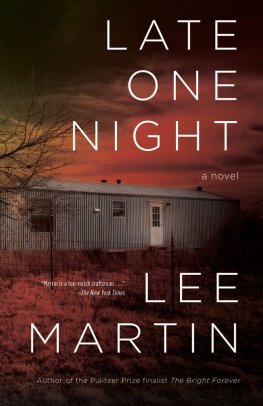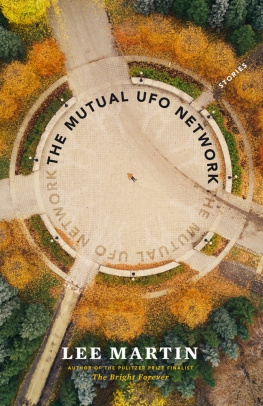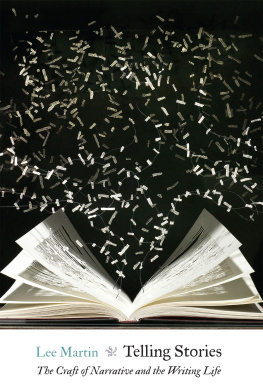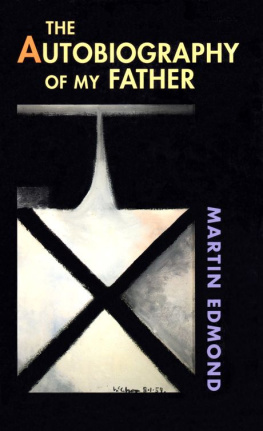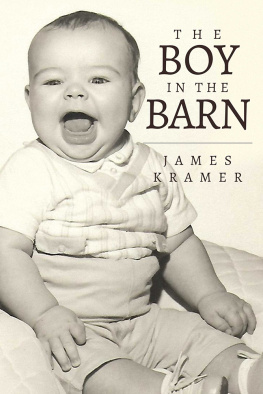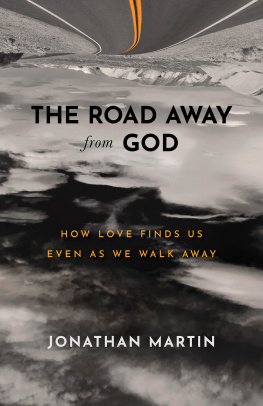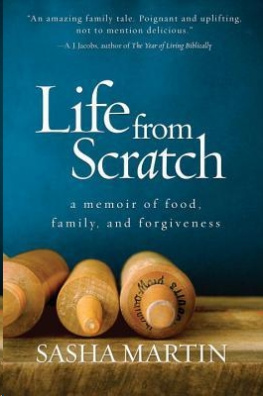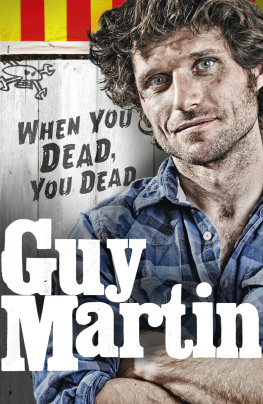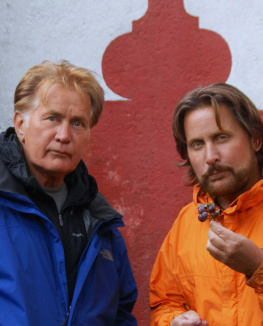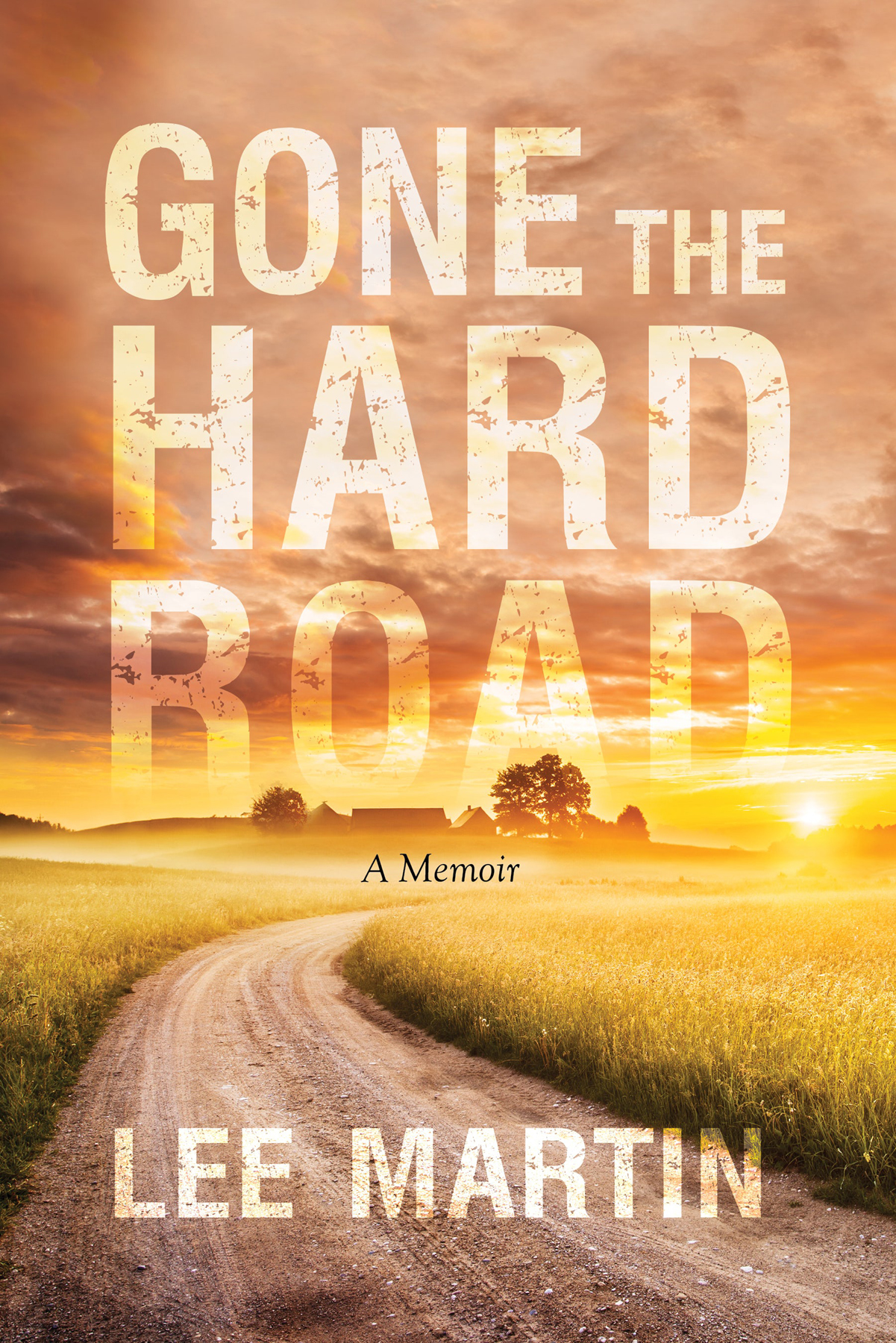Contents
Guide
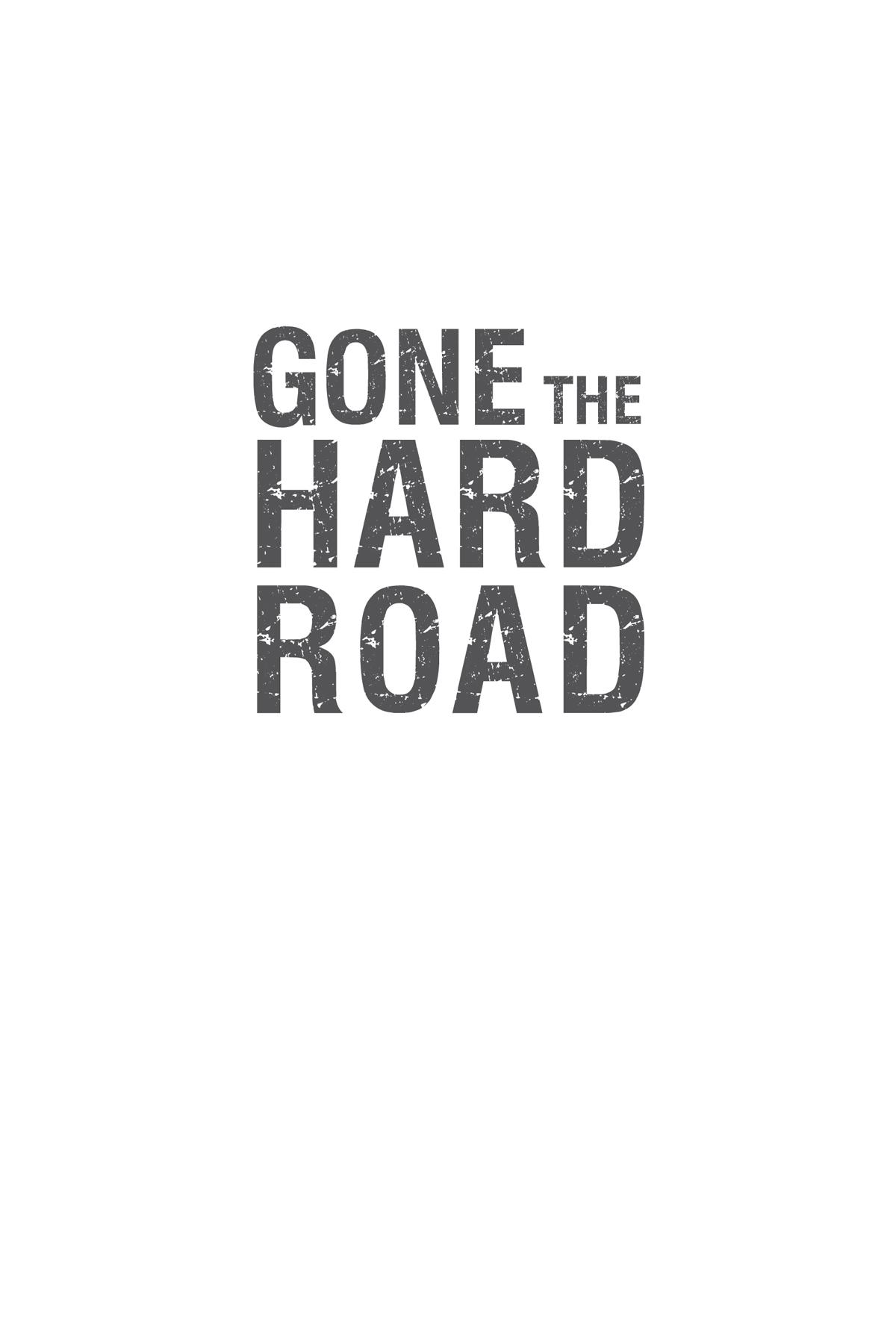

This book is a publication of
Indiana University Press
Office of Scholarly Publishing
Herman B Wells Library 350
1320 East 10th Street
Bloomington, Indiana 47405 USA
iupress.org
2021 by Lee Martin
All rights reserved
No part of this book may be reproduced or utilized in any form or by any means, electronic or mechanical, including photocopying and recording, or by any information storage and retrieval system, without permission in writing from the publisher. The paper used in this publication meets the minimum requirements of the American National Standard for Information SciencesPermanence of Paper for Printed Library Materials, ANSI Z39.48-1992.
Manufactured in the United States of America
Library in Congress Cataloging-in-Publication Data
Names: Martin, Lee, 1955- author.
Title: Gone the hard road : a memoir / Lee Martin.
Description: Bloomington, Indiana : Indiana University Press, [2021] | Summary: Gone the Hard Road is the story of a mothers endurance and sacrifice, and the gift of imagination she gave her son. Extending Lee Martins acclaimed first memoir, From Our House, which told the story of the farming accident that cost his father both his hands and led to his rage, this new book focuses more on Martins mother and the world she created for him within their unsettled family life. From the first time she read to him in a doctors office waiting room, to her enrolling him in a childrens book club, to the first time she took him to a public library, to the books she bought him when he was in high school, this narrative portrays the selfless actions she took, sometimes despite her husbands opposition, to show her son a different way of living. Whereas From Our House and Martins second memoir, Such a Life, concentrated on the life his father threatened to destroy, Gone the Hard Road tells the story of a loving mother and the life she made possible, even though she knew the eventual cost to herself. A poignant, honest, and moving read, Martins story about leaving home will stay with anyone who has ever struggled to find their place in the worldProvided by publisher.
Identifiers: LCCN 2020009494 | ISBN 9780253053862 (cloth ; alk. paper) | ISBN 9780253053886 (pdf)
Subjects: LCSH: Martin, Lee, 1955- | Authors, American20th centuryBiography.
Classification: LCC PS3563.A724927 Z46 2021 | DDC 813/.54 [B]dc23
LC record available at https://lccn.loc.gov/2020009494
1 2 3 4 5 25 24 23 22 21
Portions of this book have appeared in different forms in the following: The Best American Essays, 2016; Booth; Cincinnati Review; Georgia Review; 1996: A Journal of Creative Nonfiction; Post Road; River Styx; the Sun; Tri-Quarterly; and Zone 3.
for Cathy
CONTENTS


W e called the paved road we traveled from our farm to the tiny town of Sumner, Illinois, the blacktop or the hard road. Our township was made up of gravel roads that ran at right angles in one-mile sections along fields of wheat or soybeans or corn. We drove those roads with pickup trucks, grain trucks, tractors, and, of course, our family cars, which were always dirty. The mud and grime and dust that covered our Fords and Chevrolets, our Plymouths and Pontiacs, made it plain to those who lived in town that wed come up from the country to do our grocery shopping, get our hair cut, go to the bank, and sometimes pass on through Sumner and make the turn to the east to follow Route 250 through Bridgeport and on into Lawrenceville, the county seat, to attend to business at the courthouse or to go to the doctor or the hospital.
Sometimes people got on the hard road at the Bethlehem Corneror the Hugh White Corner, as it was also calledand followed it until it intersected with Route 50. From there, they could travel east as far as Ocean City, Maryland, or west to West Sacramento, California, one hard road leading to another, the world expanding.
I was the only child of Roy and Beulah Martin. Neither of them knew that a little over a year after my birth, my father would lose both of his hands in a farming accident and become a troubled, angry man. My mother endured. A grade school teacher all her life, she was to some a meek woman, but to those of us who knew her best, she was a woman of quiet yet fierce courage. She also held a steadfast belief in the power of Christian love.
Count your blessings, shed tell me during my turbulent teen years when I had trouble sleeping. Think of everything good in your life.
This belief in goodness is what saw her through my fathers accident and all that was to come beyond itthis faith that one day everything would be better.
I wish Id shared it. I wish that all along Id let her love carry me. My fathers accident left me perpetually worried about the next disaster that might find us. I had just enough of his temper to steel myself against him, and I had just enough of my mothers tenderness to long for a better way of living. I spent most of my childhood into my young adult years trying to determine a path for myself. I wasnt quite rough enough for farm life and my fathers intensity, nor was I quite gentle enough for my mothers compassionate nature. I felt, and sometimes still feel, myself trying to walk a tight wire between those two extremes.
Maybe my story begins long before I was born, when my grandmothermy fathers motherlost two children to summer complaint, a bacterial infection of the intestinal tract, each at the age of two. My father was the one born after them, my grandmothers last child, and how could he not have felt a responsibility to keep himself safe? A duty he failed to fulfill one November day in 1956 when he was harvesting corn. The shucking box on the picker was clogging up, and instead of shutting down the power takeoff, he tried to clear the box while the snapping rollers were still spinning. Those rollers pulled in one of his hands, and when he tried to dislodge it with his free one, they caught it too. He ended up losing both of his hands to amputation, and as long as I knew him, he wore prostheses, or as he called them, his hooks.
All through my childhood, he was unable to hold my hand, pick me up, or play games with me. At first, I didnt know enough to understand how his accident had put a barrier between the two of us, but I know it now. If anyone had a right to be wary, worried, and on the lookout for the next threat, the one he felt certain lurked just around the corner, just out of view, it was him. He knew the way our lives might change in an instant, such a sliver of time, such a smidge, in all the seconds that were meant to be ours. What a responsibility he must have felt toward me, his son. I have no doubt, despite the troubles that often arose between us, he would have done anything within his power to save me. Other boys learned to swim when their fathers tossed them into farm ponds. Other boys drove tractors and trucks as soon as their legs were long enough to reach the pedals. Not me. After that day in the cornfield, my father was through with taking chances. My mother, amid the turmoil his anger brought into our home, wanted nothing moreIm sure of this nowthan to live a peaceful life.
Next page

